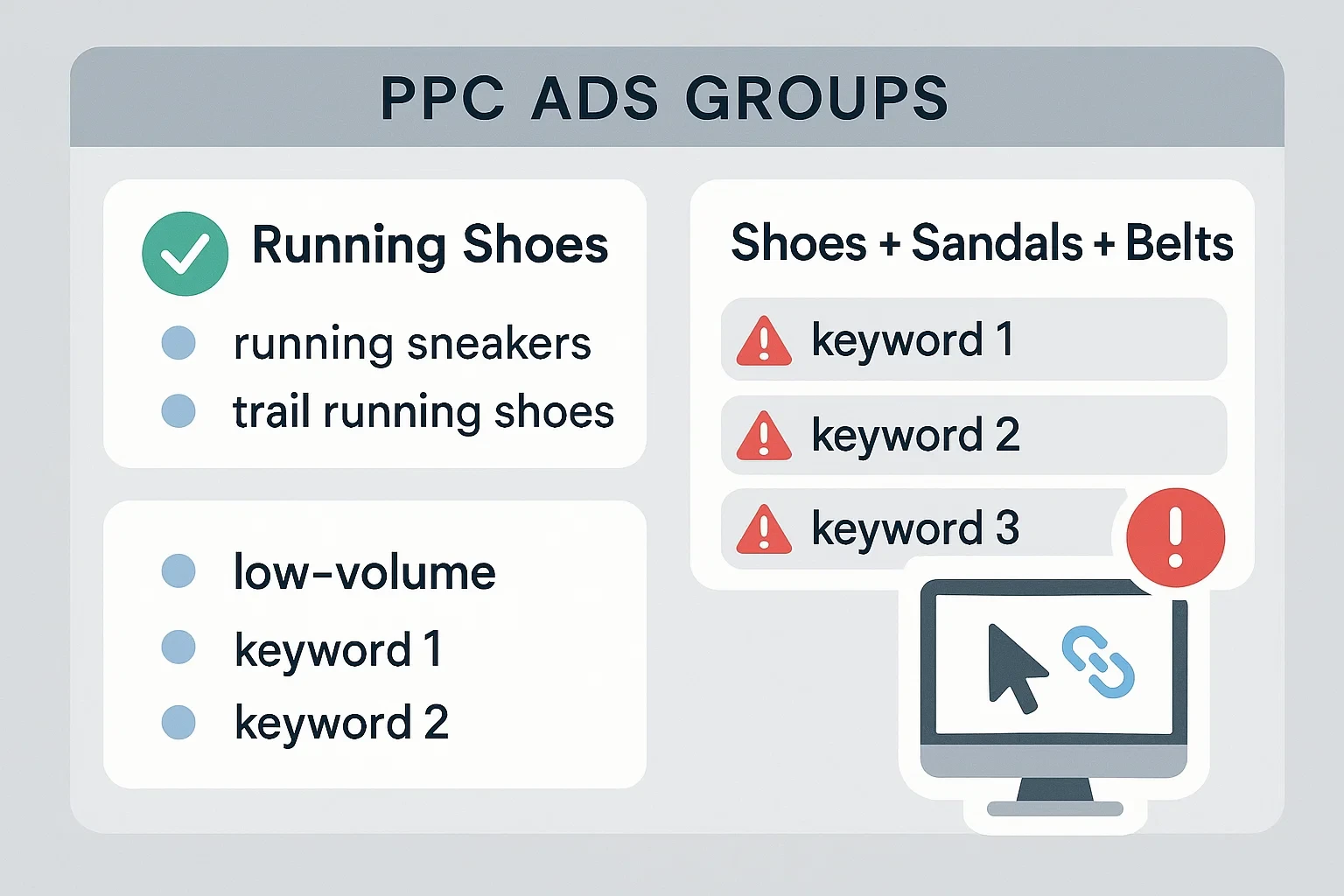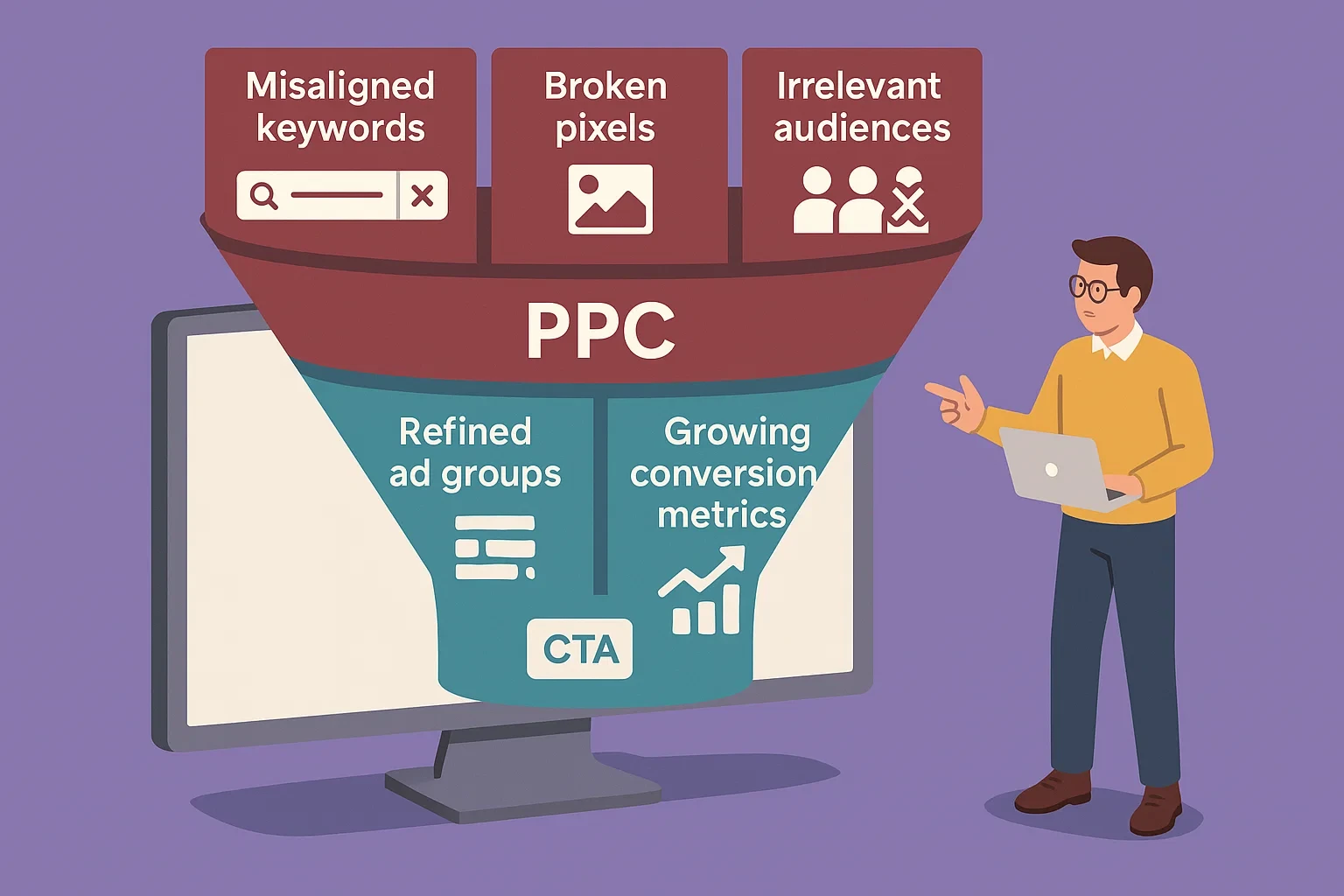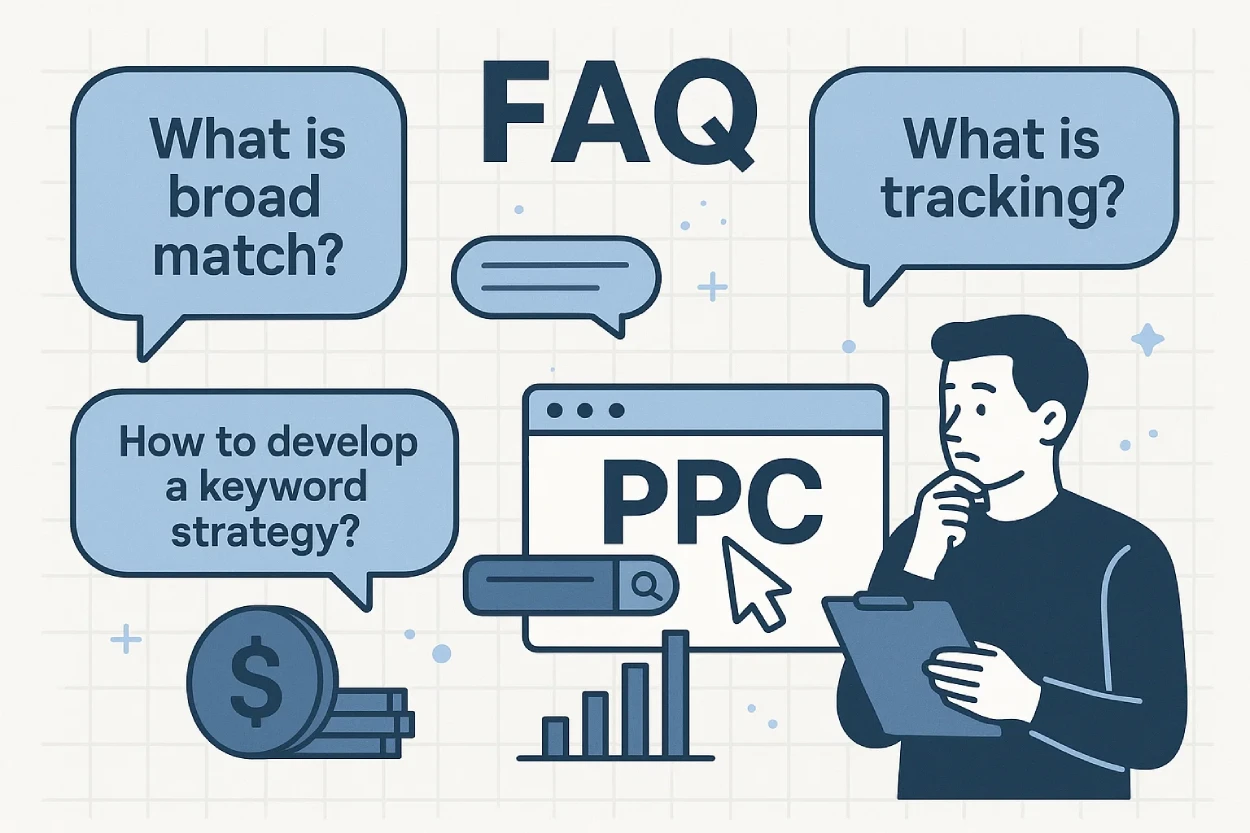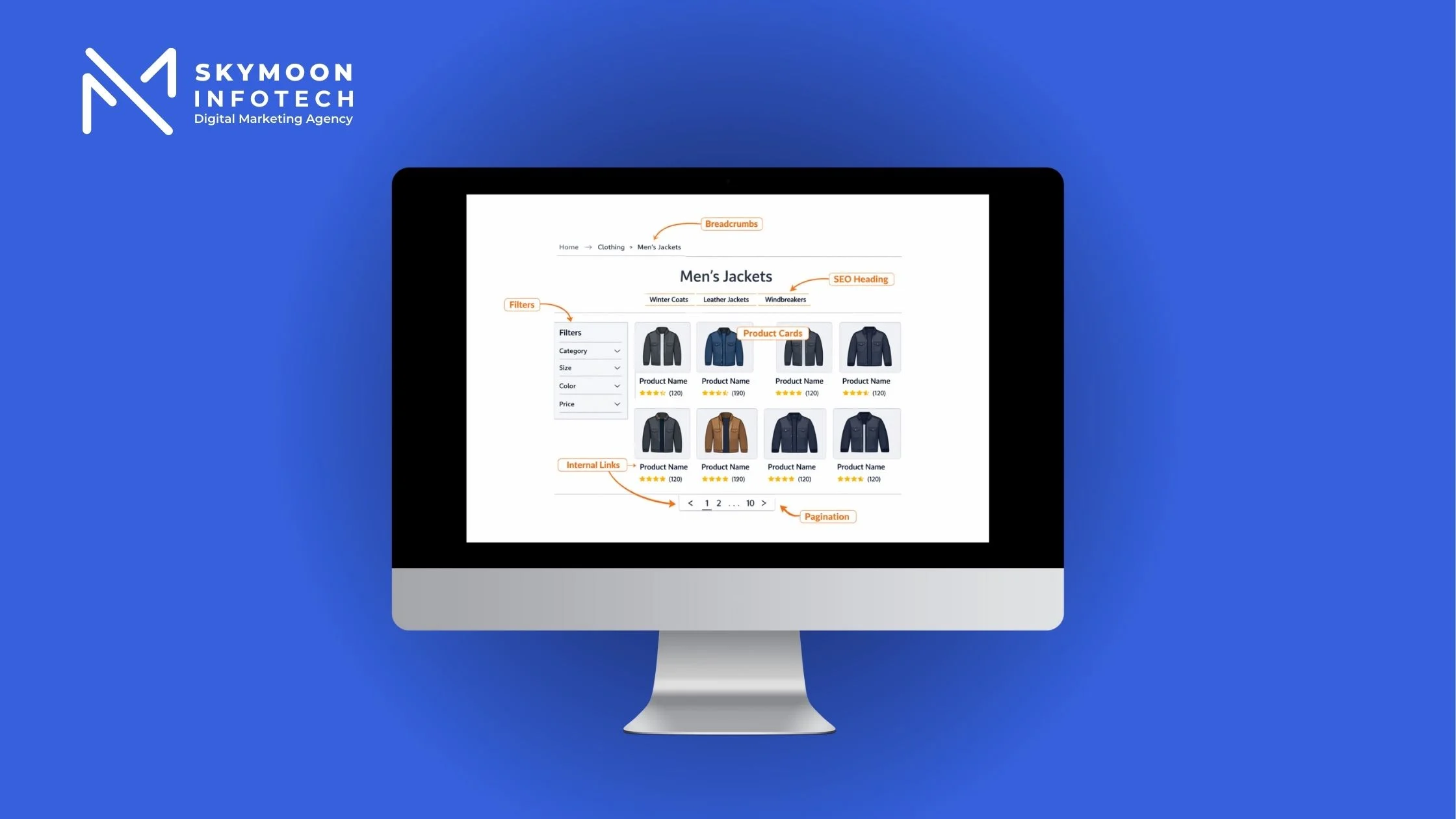Why Even Smart PPC Campaigns Fail
Pay-per-click (PPC) advertising is one of the fastest ways to capture high-intent traffic. Yet, even well-funded campaigns often fall flat. Why? Seemingly small errors—like poorly structured ad groups or forgotten conversion tracking—can silently sabotage results. In this blog, we’ll break down the most common PPC mistakes, explore why your campaign may not be working, and share actionable fixes to improve your Google Ads performance.
Mistake #1: Using Broad Match Keywords Without Control
One of the most frequent Google Ads mistakes to avoid is relying too heavily on broad match keywords. While broad match can help expand reach, it often triggers ads for irrelevant search terms. For instance, your ad for PPC services in India could appear when someone searches for “free PPC certification,” resulting in wasted clicks.
To avoid this, consider using phrase match or exact match instead, and always pair broad keywords with tightly structured ad groups and negative keywords. As per Google Ads documentation, understanding how match types work is critical to keyword targeting success.
Mistake #2: Ignoring Negative Keywords
Skipping or neglecting negative keywords can drain your budget without you noticing. These keywords prevent your ads from appearing in irrelevant search results. For example, if you’re offering paid services, you should exclude terms like “free,” “DIY,” or “how to do it yourself.”
According to an analysis by HigherVisibility, this oversight is among the most budget-wasting mistakes in PPC. Additionally, frequent audits help uncover newly emerging negative search terms, keeping your targeting sharp.
If your campaign is not converting despite impressions and clicks, reviewing your negative keyword strategy might be the fix, as highlighted in this HawkSEM diagnostic guide.

Mistake #3: Poor Campaign & Ad Group Structuring
One of the most overlooked PPC strategy mistakes is poor campaign structure. Many advertisers lump dozens of unrelated keywords into a single ad group, expecting Google to figure it out. This not only dilutes relevance but also harms Quality Score and increases CPC.
Instead, aim for granular ad group structures—grouping tightly related keywords together. For example, if you run ads for different product categories (say “men’s sneakers” and “running shoes”), create separate ad groups for each with tailored ad copy and landing pages.
As highlighted by Cardinal Digital, granular segmentation improves ad relevance, impression share, and reduces time to reach statistical significance.
Mistake #4: Targeting Low-Volume or Irrelevant Keywords
Another subtle but damaging mistake in PPC campaigns is targeting low search volume keywords without strategy. While long-tail terms can be valuable, some are so niche or infrequent that they limit impressions entirely. Worse, if they’re not tightly connected to your offer, you risk attracting the wrong audience.
To fix this, use tools like Google Keyword Planner to filter out zero-volume terms and regularly assess keyword performance in your PPC audit checklist. As explained by WordStream, these keywords aren’t always bad—but they require strict relevance and intent match to justify inclusion.
Mistake #5: No Conversion Tracking or Incorrect Setup
If your conversion tracking is not working, your data is lying to you. Many advertisers assume tracking is set up correctly, only to discover months later that form submissions, purchases, or calls aren’t being recorded.
The result? You’re optimizing based on impressions and clicks—not actual business results.
To resolve this, run a tracking audit using tools like Google Tag Assistant or GTM debugger. Cross-check that all triggers are firing, goals are syncing with Google Analytics, and that nothing breaks during landing page redirects. A good PPC audit—often tied to strong CRO services—starts with clean data, as outlined in HawkSEM’s PPC audit guide.

Mistake #6: Not Reviewing Performance Frequently Enough
Many marketers ask, “Why is my PPC campaign not working?”—only to realise they’ve left it untouched for weeks. Without consistent performance reviews, budgets can quietly bleed into non-performing keywords, or ads can run with outdated offers.
Running a weekly or bi-weekly audit allows you to spot issues like rising CPCs, declining CTRs, or irrelevant search terms. Focus on checking audience targeting, device splits, and conversion actions. Use a structured PPC audit checklist to simplify your reviews and ensure nothing critical slips through.
Mistake #7: No Strategy for Optimization or Testing
Your Google Ads account isn’t a “set it and forget it” tool. One of the most damaging PPC strategy mistakes is failing to test and optimize continuously. Without A/B testing headlines, adjusting bids, or refining targeting, your campaign stagnates—even if it started strong.
With new formats like Google Demand Gen Ads, adapting your creative strategy is more important than ever. Simple changes like adjusting ad copy for intent or rotating creatives seasonally can boost CTR and ROAS.
Also, don’t forget quality score factors like ad relevance, landing page experience, and expected CTR—they play a direct role in your ad rank and cost.
Mistake #8: Weak Offer or Misaligned Messaging
Even the best-targeted campaign fails if your ad and landing page messaging miss the mark. If your headline says “Instant Free Audit,” but the landing page shows a form for a paid consultation, users bounce. Similarly, generic CTAs like “Learn More” often underperform compared to value-driven CTAs like “Get Your Free PPC Health Check.”
Messaging and offer mismatch is one of the top reasons campaigns underdeliver, as shared in this insight from Define Digital Academy. Aligning ad copy, visuals, and CTAs with the intent behind your keywords is crucial to increasing conversions.
Final Fix: Run a Strategic PPC Audit & Apply Best Practices
If you’ve spotted multiple issues above, it’s time to hit reset. Conduct a full PPC audit and rebuild your campaigns around these 5 pillars:
- Keyword intent alignment (use negative keywords + long-tail targeting)
- Granular ad group structure
- Smart match-type strategy (limit broad match)
- Conversion tracking setup
- Regular optimization routines
For brands ready to improve performance, consider starting with a free PPC audit to benchmark your current setup and find high-impact improvement areas.
Want to uncover hidden inefficiencies in your campaigns?
Let our team at Skymoon Infotech run a free PPC audit. We’ll help you fix what’s broken—and scale what’s working. We’ll help you fix what’s broken—and scale what’s working.

Frequently Asked Questions About Common PPC Mistakes
Why is my PPC campaign not working even after getting clicks?
If you’re getting clicks but not conversions, it’s likely due to one of three issues: misaligned landing pages, weak CTAs, or unqualified traffic. Start by reviewing your conversion tracking setup, and run a PPC audit to identify where users drop off. Also ensure that your keyword intent matches the offer you’re promoting.
What are the most common Google Ads mistakes to avoid?
Some of the most frequent Google Ads mistakes to avoid include overusing broad match keywords, ignoring negative keywords, grouping unrelated keywords in one ad group, and running campaigns without conversion tracking. Neglecting performance reviews and not testing ad copy also leads to underperformance.
How often should I review or audit my PPC campaigns?
Ideally, conduct a light PPC audit weekly to review keywords, budgets, and search terms. Perform a comprehensive audit monthly to inspect tracking, targeting, ad copy, Quality Scores, and landing page performance. This ensures your campaigns remain aligned with changing trends and user intent.
Are low-volume keywords worth targeting in PPC?
Yes—but selectively. Low search volume keywords can be highly targeted and deliver excellent ROI, especially when they’re long-tail and match user intent. Just make sure they’re not cannibalizing budget or blocking higher-performing terms from showing.
Need help applying these fixes or auditing your PPC performance?
Contact Skymoon Infotech for expert campaign support.








